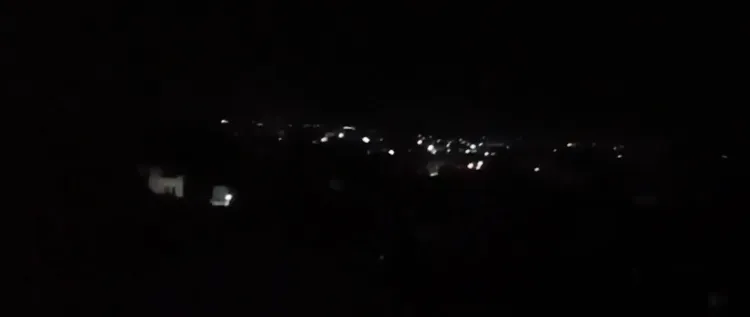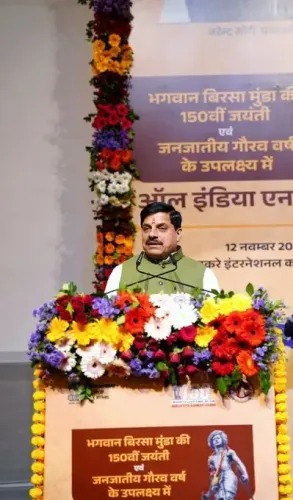Was Pakistan's Aerial Attack on Jammu Successfully Foiled by Indian Air Defence?

Synopsis
Key Takeaways
- India's air defence systems successfully thwarted an aerial attack from Pakistan.
- Drones and missiles were used in the attempted strike.
- Emergency protocols were activated, leading to widespread blackouts.
- Retaliatory strikes targeted Pakistani military installations.
- The conflict highlights the ongoing tensions in the region.
New Delhi, May 8 (NationPress) An aerial assault by Pakistan aimed at Jammu was effectively thwarted by India’s air defence systems on Thursday night.
The intrusion, involving both drones and missiles, resulted in power outages and alarms sounding across numerous regions in Jammu & Kashmir, Punjab, and Rajasthan. Authorities urged locals to stay indoors and remain alert as emergency measures were put into effect.
In response to the aggression, India has reportedly executed retaliatory actions.
Sources indicate that the Indian air defences successfully neutralised multiple drones approaching the Jammu airport, with no injuries reported.
Additionally, reports confirm that eight missiles were intercepted near Jammu, with all being successfully destroyed. The incident also caused a temporary power outage at the Vaishno Devi shrine in Reasi district, with similar disruptions reported in Srinagar amid heightened security.
Meanwhile, a Pakistan Air Force F-16 supersonic fighter jet was downed in the evening by an Indian surface-to-air missile defence system, according to NDTV.
The F-16, which launched from the Sargodha air base, was reported shot down in close vicinity.
This offensive from Pakistan occurred shortly after an earlier attempt to target 15 Indian cities was thwarted.
Army officer Colonel Sofiya Qureshi and Air Force Wing Commander Vyomika Singh confirmed that cities such as Awantipora, Srinagar, Jammu, Pathankot, Amritsar, Kapurthala, Jalandhar, Ludhiana, Adampur, Bathinda, Chandigarh, Nal, Phalodi, Uttarlai, and Bhuj were on the attack list. Nevertheless, India’s integrated counter-UAS grid and robust air defence systems successfully neutralised all threats. Debris collected from various sites confirmed that the drones and missiles originated from Pakistani territory.
In a prompt retaliatory strike, Indian armed forces targeted and dismantled several Pakistani air defence systems, including a significant installation in Lahore. Concurrently, Pakistan's military commenced unprovoked shelling in the Kupwara, Baramulla, Uri, Poonch, Mendhar, and Rajouri sectors of Jammu & Kashmir, employing heavy artillery and mortars. This aggression resulted in the heartbreaking deaths of 16 civilians, comprising five children and three women. The Indian Army responded decisively and proportionately.
Earlier, India had conducted precision airstrikes under Operation Sindoor, targeting nine terrorist camps in Pakistan and Pakistan-occupied Kashmir, reportedly eliminating around 100 militants.









